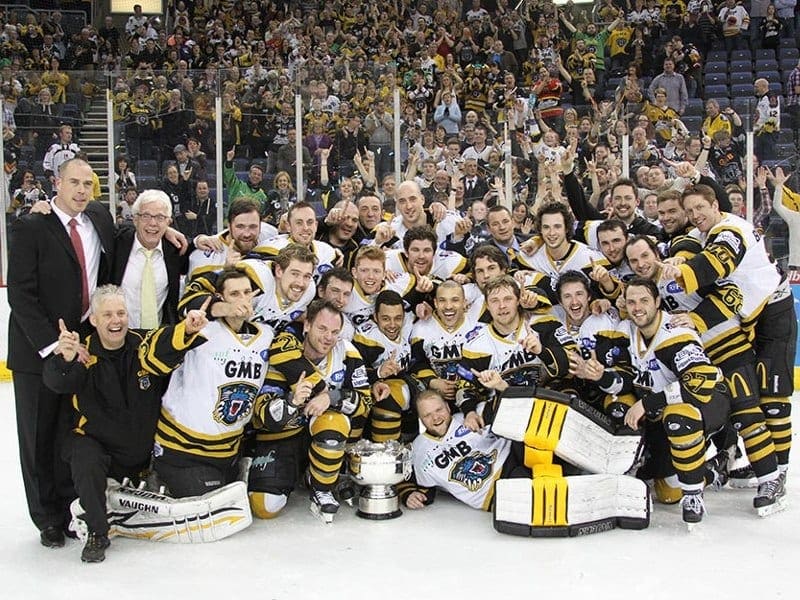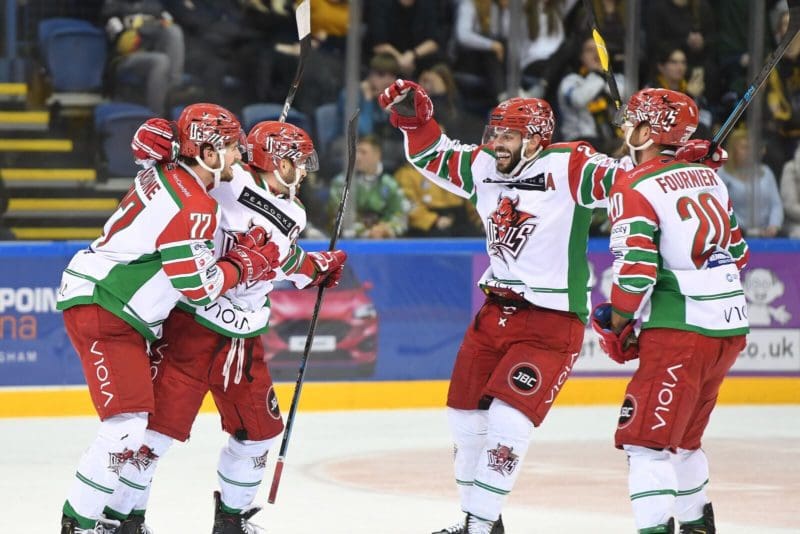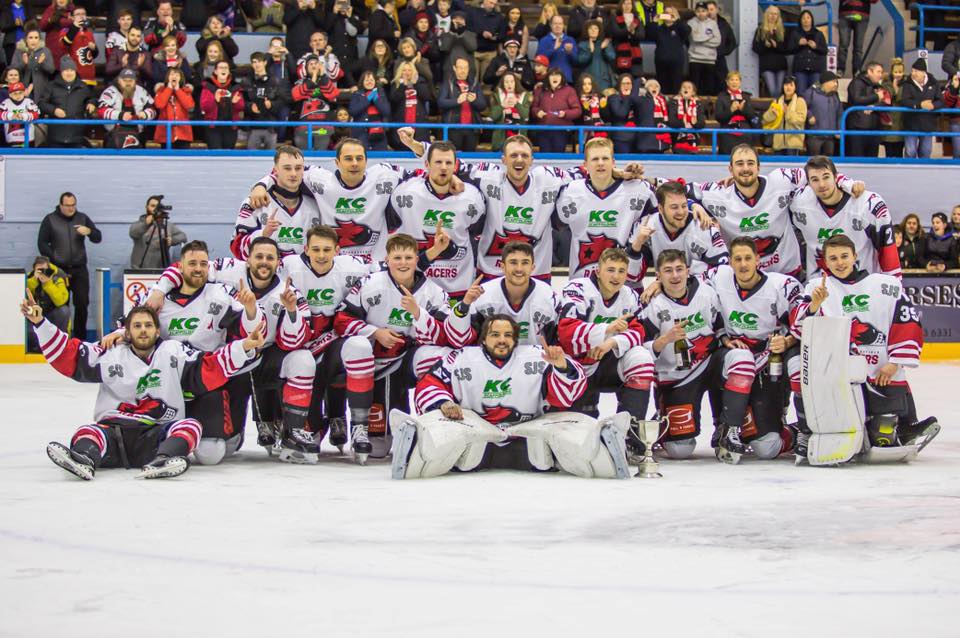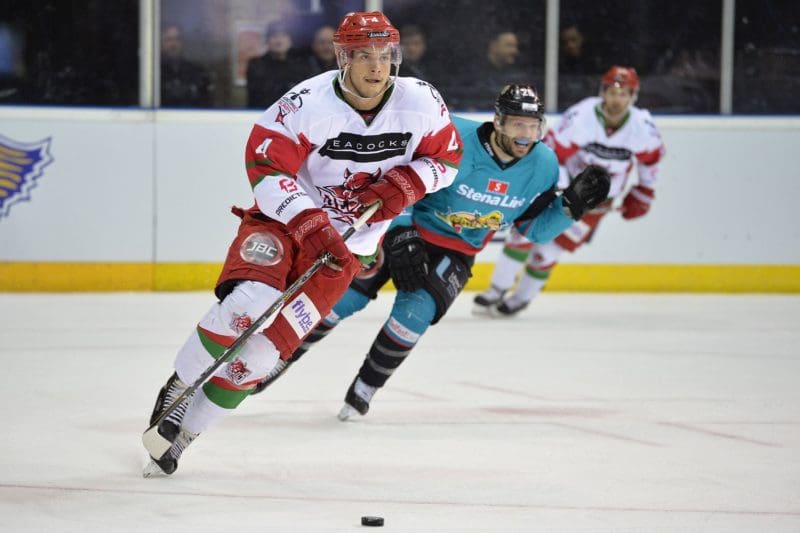
In the life of any ice hockey fan there are three little words that transcend everything else.
They stand as the epitome of what it is to watch our sport. They define the whole experience of sitting in a comfortable seat in a huge arena or with your nose pressed up against the plexi-glass as the cold slowly seeps up through your feet in a small rink.
The same can be said for or by fans of any sport, but we’re all ice hockey fans here aren’t we? Let’s indulge ourselves for a while and just think about it solely from our perspective.
So what are those three little words? Well, let’s start by saying what they’re not.
They’re not ‘grand slam winners’ as great as that feeling is. That feeling is as transient as it is euphoric and these three little words refer more to something you have forever.
The same can be said for ‘the league champions’ or ‘play off winners’ for the same reason. They’re not ‘(insert your team name here) fan’. That may have the longevity required, but these words are universal and don’t belong to any one team.
They apply as much to a Nottingham Panthers or a Sheffield Steelers fan as they do a Deeside Dragons fan, a Solihull Barons fan or even a Durham Wasps or Ayr Bruins fan. The words will still ring as true whether it’s a day, a week, a month or ten years since your team took to the ice.
Those three little words are quite simply ‘I was there’.
Think about it for a minute, think about the highs (and the lows) that you’ve seen over the years that you have been watching ice hockey and think about what makes those moments special. Do those memories include a TV or computer screen? Probably not. They may do – we’re not all the same – but I know mine don’t.
You want an example?
What else would get you out of bed at 5 o’clock in the morning to start a 300 mile journey to catch a ferry from Cairnryan to Belfast because there’s a chance your team might just win the league that night?
Being there was all that mattered. I had to be able to say ‘I was there’. I don’t think I could have lived with myself if I hadn’t been. I could easily have watched it on the webcast that I’d already paid for (I’m possibly the only person there that night who also bought the webcast and the DVD) but, to me at least, it wouldn’t have been the same.
Watching ice hockey on TV can never be the same as being there. By its very nature it dilutes what you are seeing. It creates a distance both real and metaphorical that stands between you and the action in a way that you never get when you are there.
We’ve all screamed and shouted at a television set in the past, but deep down we know that it won’t have any effect.
Compare that to shouting and cheering when you’re at a game. You KNOW, and I mean KNOW, that the noise you are making is going to have an effect on what you see before you.
That effect probably depends on what you’re shouting and how far away you are (shouting abuse from the back row of an arena is just going to sound like noise to a player unless it’s REALLY quiet) but you will have an effect.
I think it’s the interaction that makes being there so special. You’re part of what is going on not just a spectator. You might not be on the ice, you might not make much noise but you are part of the crowd, that mythical extra player that so many people talk about.
We get told so often that the crowd can make all the difference and if we’re told that as often as we are then it must be right, mustn’t it? They can’t make a difference if they’re watching at home can they?
And then there’s the bragging rights. Being there means you can tell the story, either in articles or like this, or more often sat round a table in a pub.
We’ve all got at least one ‘I was there’ story and the older you are, the longer you’ve been going the more stories there are.
They’re easy enough to spot – they usually start with ‘Do you remember that time when…’, ‘Who was it that…’ or ‘Remember player X?…’. They’re the milestones of your supporting history. The order might get jumbled up along the way, but they stand as a description of what you’ve been through with your team and your life.
Some of those stories you can tell – I don’t think there’s a single person who knows me through ice hockey that hasn’t heard the Durham Werewolf story at least half a dozen times. And there are those stories that are so personal, sometimes so raw and individual that you can never tell them to anyone other than your nearest and closest friends.
Those are the stories that I think matter. They don’t just set you apart from the ones who weren’t there, they set you apart from the ones who were as well.
Every story about being there is different. You may have been watching the same game, but it is how it makes you feel, the memories it brings up both at the time and after that set that story apart from someone else’s.
Take the goal that Pat Galivan scored that night in Belfast and how it changed Panthers’ history. That was a goal that elated every Panthers’ fan, but there’s more to it than just elation. It meant something different on top of that to everyone who watched it.
It triggered their own memories and stories, some good and some bad and as a result stirred up the emotions connected to them and they can be just as good or bad. Every one of those would be unique to that person.
I know that’s right because I know what it meant to me and I know that some of those feeling and memories can’t have been the same as someone else’s, how could they? They’re mine, they’re shaped by who I am and they shape and will continue to shape who I am both now and in the future.
You don’t get that intensity of feeling on television – you can’t. You only get it if you’re there. This is normally where I write some clever ending, but I can’t think of one at the moment.
It’s okay though being there and the stories that it creates is only half of the story. Time and television can have a huge effect on those memories and I’ll be looking at how in my next article.
(Image permission: Katie Chadburn)









